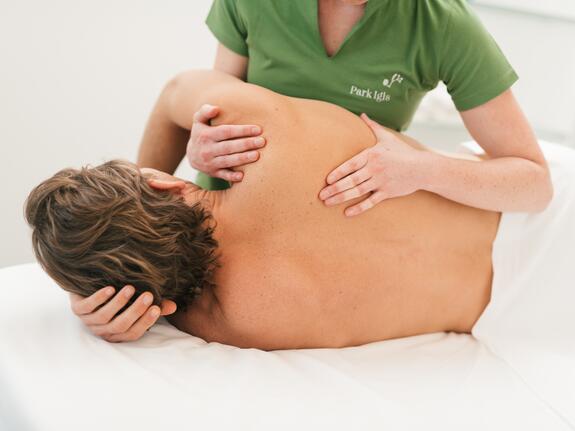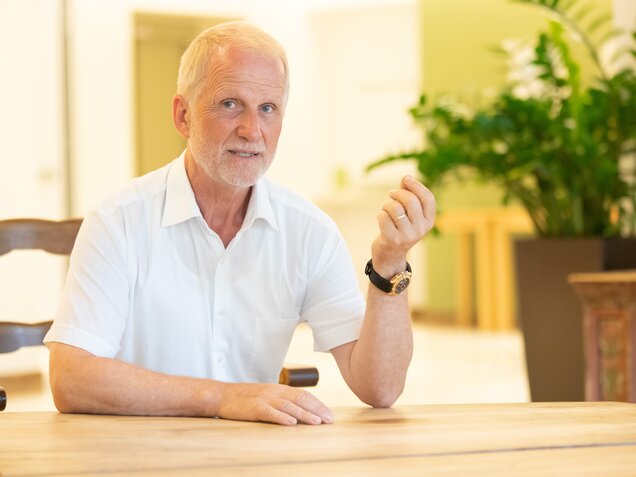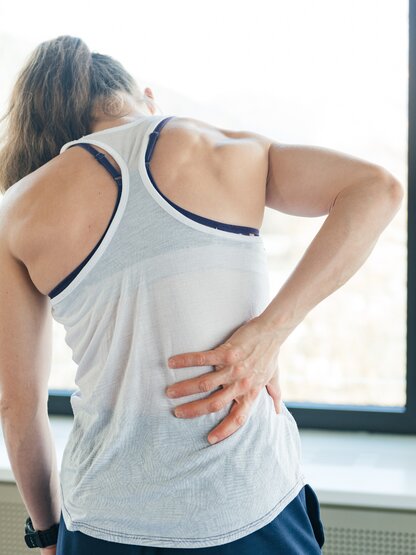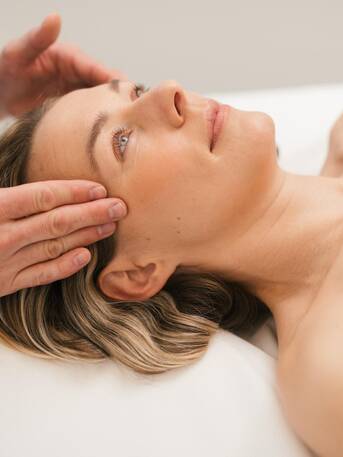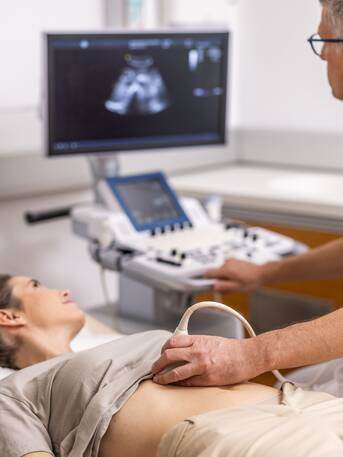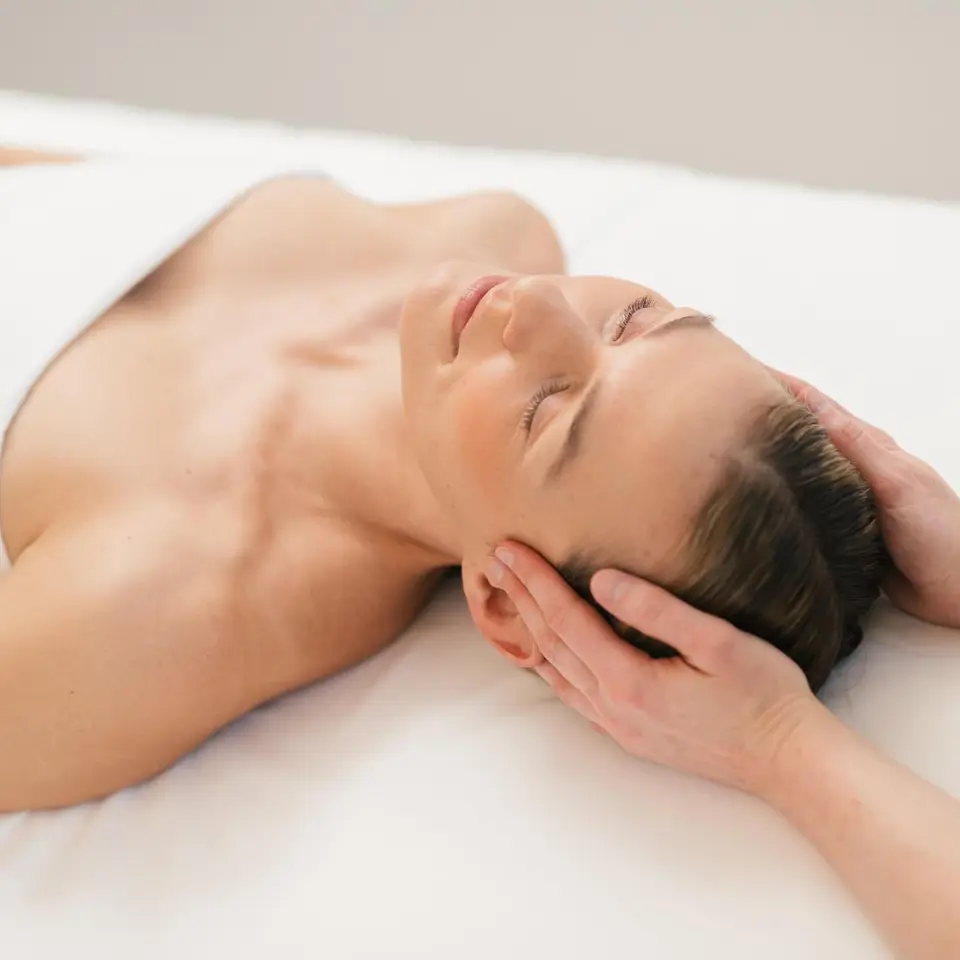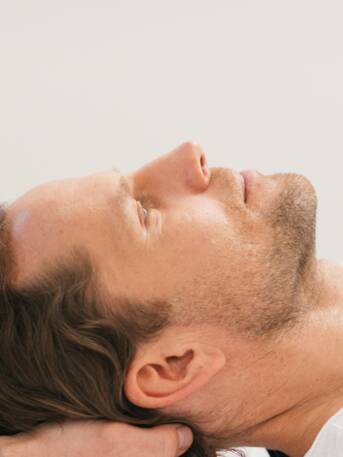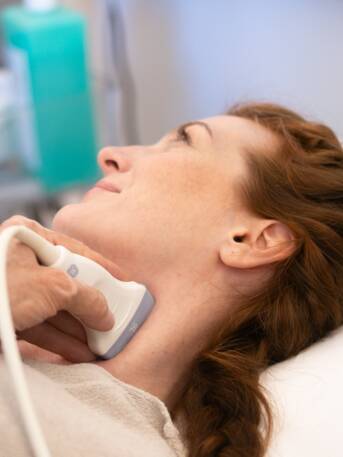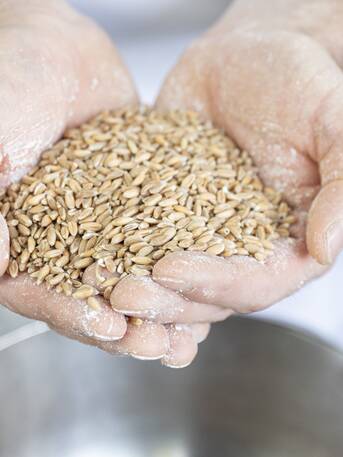How Digestive Disorders Impact Movement and Posture
Back pain, neck tension, persistent muscle pain, and other issues that significantly impact well-being are often caused by a deeper, underlying conflict: problems in the digestive system.
When Digestive Health Impacts the Spine
A Holistic Perspective
Dr Richard Kogelnig, Mayr Doctor at Park Igls, discusses the connections based on studies and personal experiences in the following interview with Dr Kurt Luger, which have also been incorporated into the Mayr Cure and therapy forms. In his lectures, he regularly points out how closely the functioning of our musculoskeletal system is related to a healthy stomach and intestines.
Expert Answers from Dr Kogelnig
What the Gut Has to Do with Back Pain
Dr Kogelnig: There are numerous syndromes in orthopaedics that originate in the gastrointestinal tract. This includes:
- Tension headaches
- Neck issues
- Back pain
Common additional issues include:
- Blockages in the cervical, thoracic and lumbar spine
- Blockages in the sacroiliac joint
- Shortening of the hip flexor
The hip flexor tends to shorten in cases of inflammation in the colon and can trigger symptoms resembling a herniated disc – known as pseudo-sciatica. Spinal blockages may cause such complaints through muscular chains, but these blockages are often co-triggered by functional disorders in the digestive system, such as gastritis, irritable bowel syndrome or various inflammations.
Dr Kogelnig: These organs are connected via the nervous and hormonal systems – no organ should be viewed in isolation. Disturbances in organ function affect other systems as well. Inflammation in the gastrointestinal tract can trigger inflammation in connective tissue, blood vessels or muscles.
There is a link between structure and function – a concept already recognised by F.X. Mayr. When ideal posture is lost, structural changes can reveal underlying dysfunction and impaired bodily functions.
Dr Kogelnig: Absolutely. Increased fermentation and putrefaction processes in the intestines affect posture. Gastritis, for example, can cause cramping as stomach muscles contract. The body, bent in pain, compensates with a protective posture – such as excessive pelvic tilting – which can in turn strain the ankle joints and lead to further orthopaedic issues.
Dr Kogelnig: These are often the underlying issues. If only physiotherapy is used and the digestive tract is overlooked, long-term recovery will not occur. I’ve seen many cases where restoring gut health has fully resolved musculoskeletal issues. Problems in the small intestine can manifest as thoracic spine blockages or even an irritable bladder.
There are close anatomical relationships between the intestines and surrounding organs. When bloating causes the large and small intestines to expand, it puts pressure on organs, pushing the heart, diaphragm and lungs upwards. Irritation of sensitive nerve fibres increases muscle tone in the back, altering posture.
Dr Kogelnig: Conventional medicine often draws strict lines – the orthopaedist doesn’t deal with the gut, and gastroenterologists don’t concern themselves with the musculoskeletal system. But a holistic approach is essential to understanding what’s going on. In Mayr Medicine, we think in systems. If someone presents with spinal issues, I naturally examine their internal organs. Otherwise, we’re just treating symptoms. Tenderness in the abdomen often correlates with spinal issues.
Here’s an example: the large lumbar muscle – the hip flexor – responds strongly to the colon. If the colon is irritated, the muscle shortens reflexively, potentially mimicking a herniated disc or even causing pelvic misalignment. But the problem lies elsewhere and cannot be solved by disc surgery. Only by treating the organ – via colon cleansing, healing the mucus membrane, and changing the diet to reduce fermentation – can the musculoskeletal symptoms be resolved. The root cause is the neurological connection between the diseased digestive tract and the spinal cord.
A similar phenomenon occurs with a raised diaphragm involving a reflex mechanism between the heart and duodenum. Inflammation in the duodenum or stomach irritates the intercostal muscles and often presents as "stabbing heart pain" – leading patients to see a cardiologist for what is in fact a digestive issue. This is why physiotherapy and Modern Mayr Medicine must work closely together to identify and permanently resolve these issues. Exercise, physical therapy, dietary change and lifestyle improvements are the best “medicine” for these conditions. Only by understanding the systems and their interconnections – linking the digestive tract with other organs – can we achieve long-term healing.
Dr Kogelnig: There are neural pathways connecting the circular and longitudinal muscles of the intestines directly to the spinal cord. Sensory nerve fibres transmit signals to the spinal cord’s motor horn via a reflex arc. This controls muscular processes – and in the case of gastritis, the neck and shoulder muscles, which are reflexively linked to the stomach, are negatively affected. Combined with poor posture, this can cause headaches and further spinal blockages. Sensory nerve fibres activate motor fibres in the spinal cord – establishing a direct connection to the musculoskeletal system.
Support for Digestive Complaints at the Park Igls Medical Spa Resort
Healing Programmes
Whether you opt for the Detox Classic at Park Igls to target digestive disorders or choose a more tailored therapeutic focus – your programme will be based on the principles of Modern Mayr Medicine. Supplementary diagnostics and a wide range of customisable treatments allow your stay to be precisely adapted to your individual needs.
